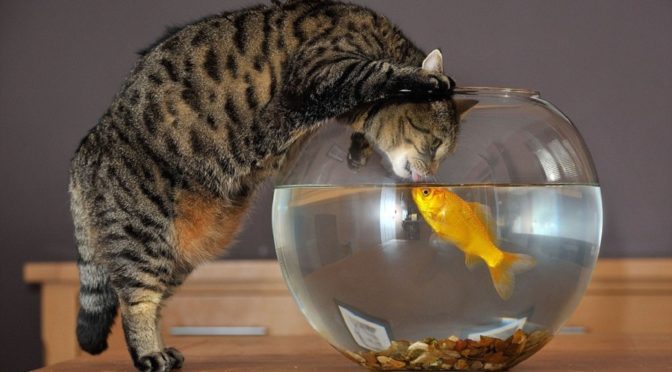by David Cain at Raptitude
I tried something new with my most recent vacation. I planned to spend seven days in Portland, visiting a friend, riding bikes, eating artisanal donuts and drinking craft beers. But I divided this week into two, and in the middle, spent an entire week at a silent retreat.
The basic idea of a silent retreat is to see how quiet the mind can get when you stop feeding it entertainment, conversation, and daydreams. Instead, you notice what’s happening inside you and around you, and come back to that when you get distracted.
Essentially you are meditating in some posture or another—either sitting, walking, eating or going to the bathroom—for the sixteen hours each day that you’re not sleeping.
It’s hard to convey just how aware a person becomes after spending more than 100 hours in meditation over seven days. The world becomes incredibly quiet and simple. You can hear eight different sounds at once, and never lose track of what direction each is coming from.
At first you’re mostly noticing the obvious things: bird songs, the breeze, the weight of doors you use, the feeling of your clothes, the creaking of floors. But then you start to notice subtler phenomena.
Your thoughts really slow down, and at a certain point become obvious, like somebody saying something in a quiet room. The mind becomes so quiet that you notice the tiniest ripples in your feelings. Our experience is full of some very subtle feedback that normally gets drowned out—tiny gut feelings, emotional residue from thoughts about certain topics, faint attractions or aversions to tiny details like the way your food is sitting on your plate.
Normally our minds are so abuzz with layers of dialogue, memories, fears and ruminations, that we barely notice we’re thinking at all. Our everyday experience is so saturated with ongoing idle thought that it essentially becomes invisible. We’re like David Foster Wallace’s proverbial goldfish—after an older fish asks him, “How’s the water today?” he quietly asks his friend, “What the hell is water?”
When thoughts are as clear and far-between as they are on retreat, you learn what your mind is actually like—the events that send it spinning, the places it goes when you’re not watching, the trouble it gets into. You start to see the billiard-ball effect a single thought can have on you, how easily it sets off emotions, how those emotions shape your moods and attitudes.
With so little noise, you can start to map out the mechanics of the everyday preoccupied mind—how thoughts make you worry and ruminate, and how unnecessary most of the resulting stress is.
How stress is born
One afternoon I was doing walking meditation along a gravel path, and a fellow retreatant was doing the same thing, only at a much slower pace. Just as I passed him, I had the thought “Walk on, brother!” or something similarly well-meaning (but probably unnecessary).
Almost immediately, my mind came up with the similar phrase “Carry on my wayward son!” Another moment later the drums and guitars kicked in, and I was privately rocking out to the Kansas song of that name. Seconds later, I was reliving a memory of being a teenager, at a party where that song was playing. My friend had disappeared and I was too shy to talk to anyone new, so I sat quietly on the couch for four hours, avoiding eye contact, feeling like an idiot.
Similar memories flashed through my head, and I felt really bad. This kind of painful shyness characterized my teenage experience, and much of my adult experience, and it’s never pleasant to remember.
In the next second, I recognized what had happened. I was only about six or seven steps down the path from where I had the initial thought. In less than ten seconds, I had gone from total awareness and equanimity, to a well-meaning thought, to an irrelevant memory, to a painful memory, to a familiar kind of existential rumination, and then—thankfully—back to awareness.
If I hadn’t been on retreat it might have led to a dark mood, maybe a day-long surge of social anxiety. I would probably stay home that night or maybe treat myself to a pizza or something—and have no idea why. All of this because a thought I had happened to remind me of a 1970s rock anthem.
I witnessed this pattern again and again: a thought would come out of nowhere, it would remind me of something, then something else, then something else, and eventually land on something personal and often painful—a memory or imaginary future moment where something is at stake, something I need to do, or avoid.
This is what the mind is doing all the time. The mind is an extremely powerful connect-the-dots machine, constantly and rapidly making associations between what it notices, triggering any one of a zillion memories or projections about the future. All of these scenarios include you of course, and often there’s something at stake, some fixation on having things go a certain way.
Essentially, the mind is making stories: sequences of events, past or future, where you stand to gain or lose something. You imagine—or re-imagine—a date, an interview, a conversation, an argument, a Facebook comment thread gone awry, a future performance evaluation, a call-out from a family member who, it turns out, noticed you took the last Popsicle.
Naturally, a certain desperation grows around the needs you face in these stories, which creates real stress, usually over nothing. Is it actually useful, or merely addictive, to re-enact a not-so-great speech you gave last month, for the sixteenth time? Or continually imagine a confrontation with a driver that cut you off on the way to work this morning?
These stories are just a natural by-product of the human mind’s amazing ability to make connections between similar thoughts, but they reliably generate real stress. This free-association ability isn’t wholly a bad thing, and is in fact necessary for making plans and learning from our mistakes. But most of the time it is completely useless idle thinking, just random sequences of imagined events we endure and suffer for absolutely no benefit.
Find the story, leave it unfinished
You don’t need to go on retreat, or even meditate at all, to begin to address this problem, although it is almost certainly the most direct way. (If you are interested in exploring meditation, feel free to drop me an email.)
It’s enough to simply recognize this basic relationship between stress and stories. Virtually every time you experience stress, it’s a response to a narrative in the mind, a story about something you feel you need to have happen or prevent from happening.
When you notice stress rising at some random moment, find the story. It can probably be summed up in a sentence.
What’s the story? That the IRS will find an error in my return and send me a bill I can’t pay. That everyone will hate my article when I publish it. That I’ll go on a Tinder date and both of us will realize how boring I am. That the country will collapse if a certain candidate gets elected.
Many times a day, we end up ruminating on stressful, unresolvable narratives for completely random reasons—such as remembering a bloody Kansas song—yet somehow it feels like important work is being done. Ostensibly, in each of these mental eddies, you are “preparing” for life by imagining or re-enacting encounters with co-workers, muggers, law enforcement officers or prospective bosses.
But there’s no real decision-making happening, no useful preparation, just another unplanned session of self-flagellation, as we demand more control and certainty from our experience than is ever going to be available to us.
Where there’s stress, there’s a story, and you probably don’t need to hear it. Or tell it.
Whether the story is true or not (or may become true) isn’t important. You may still have to live through an actual audit or a nervous first date, and there is some uncertainty there, some real possibility of pain or difficulty. But even if the topic is decidedly relevant to your life, that doesn’t mean you need to tell or re-tell this story right now, or that it will help you in real life.
Just leave the narrative unfinished—not that they ever can be finished—and go back to what you were doing before the storytelling started. That’s where life actually happens.



Thanks for the timely post.The Control System has really upped the divide and and distract machine since Brexit,with the Muslim bogeyman in the Orlando shooting FF,the Dallas shooting (that story reeks)and the continuing effort to inflame both sides with BLM.They are really pushing hard so I have been spending more time than usual online trying to read the tea leaves.
Unfortunately,studying the dark side is hard on my spiritual condition.I prefer to spend my time and energy on being the change I wish to see in the the world and continuing my spiritual growth.Being informed is important but there is a fine line between doing research and wallowing in it,and more than once in the past few weeks I have found myself neck deep in the sewer.
This post was a reminder to spend more time being and less time thinking.
Kestrel
Kestrel,
I also tend not to get immersed in the minutia of the matrix, preferring instead to watch headlines and skim stories with the occasional long read. Being a former stock broker, I do watch the markets a bit more closely, but even there my main interest is watching my insurance policy, gold and silver, for indications the whirling dervish is ramping up.
Mrs. Cog and I will discuss the latest ‘events’ and what we think are the implications and hidden agendas. But there is just too much going on up here on the mountain during the growing season to sit transfixed in front of the computer monitor. Time enough when thing slow down to watch the circus.
Like you said, we try to be the change we wish to see by simply continuing on the path we began to walk over three years ago. Our whole lifestyle here is a direct result of making major changes in our lives, then actually walking the talk.
I am not bragging. This isn’t for everyone, nor do we think it should be. But we are amazed to see how many people will talk about how bad things are getting, yet do little to nothing to actually prepare other than adding a few more stacks of gold and silver and some more freeze dried food.
Yuck!
Cognitive Dissonance
I have come to welcome periods of silence and the thoughts jumping around in my head. Many times these inner thoughts reveal things to me about myself and if I find these revelations troubling I make a conscious effort to improve in that arena. Just my thoughts here.
Thanks.